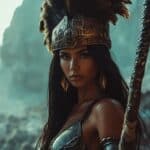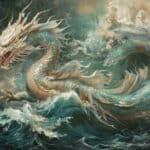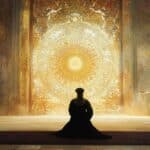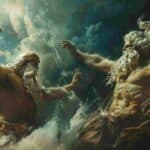A summary of the Ancient Civilisation additions in August 2024.

Taurid meteor stream
The Younger Dryas impact hypothesis (YDIH) suggests that a cosmic event around 10,835 BCE, involving Earth’s interaction with a fragmented comet, initiated the Younger Dryas mini ice age.

Chalchiuhtlicue
Chalchiuhtlicue is credited with bringing about a great flood that reshaped the world.
Gods and goddesses have associations that align with the themes of Atlantis, such as oceanic power, ancient civilizations, and advanced knowledge.

Ishtar
Ishtar is an ancient Mesopotamian goddess associated with love, beauty, war, and fertility.

Anath
Anath is often depicted as a fierce and powerful warrior goddess. She is renowned for her strength and prowess in battle

Mokosh
Mokosh is often considered the Slavic equivalent of an earth mother goddess, similar to Gaia in Greek mythology.

Turin King list
Combining both the mythical and historical sections, the Turin Royal Canon could be interpreted to cover a span of over 15,000 years

Pleiades and Orion
The widespread significance of the Taurus constellation, the Pleiades and Orion in mythologies.

Lạc Long Quân and Âu Cơ
Lạc Long Quân and Âu Cơ are central figures in Vietnamese mythology and are considered the legendary ancestors of the Vietnamese people.

The Second Race: Hyperborean
The evolution of the second root race, known as the Hyperborean Race, following the first, or Polar, Race.

Man’s First Ancestors
Steiner describes a time when human ancestors existed as astral beings in a spiritual world. These beings had no physical bodies.

The First, or Polar, Race
Steiner explores the earliest phase of human existence on Earth, focusing on the first root race, known as the Polar Race.

Humanity Before the Division of Sex
Steiner describes how, over time, humanity began to undergo a gradual division into male and female forms.

Woman in the Third Root-Race
Steiner discusses the crucial role women played during the transition from the Lemurian to the Atlantean race.

The Lemurian Era
The Lemurians inhabited the continent of Lemuria, which have been located in the south of Asia, extending from Ceylon to Madagascar, including parts of modern southern Asia and Africa.

Transition of the Atlantean into the Aryan Root-Race
The Âryan race had two main traits: one segment pursued higher ideals and spiritual power, while another focused on personal interests and selfish goals.

Atlanteans
The Atlanteans lived communally, and their settlements resembled gardens, with houses formed naturally through interwoven trees.

Mashya and Mashyana
Mashya and Mashyana are figures from ancient Zoroastrian mythology, which originated in Persia (modern-day Iran).

12 Adityas in Hindu Mythology
The Adityas are the sons of Aditi, the primordial mother goddess, and Kashyapa, a sage and progenitor of many beings.
Oannes is typically described as having the body of a fish but underneath having the form of a man.

Mound Builders in America
Mound Builders refers to various indigenous cultures in North America that constructed earthen mounds
Melchizedek is portrayed as a high priest and a cosmic savior figure. He is sometimes equated with Jesus or viewed as a prefiguration of Christ
Elyon means “Most High” and is often used as a title for God to emphasize His supreme power and authority over all other beings and gods.

Uranus – The primordial Age
Among their children were the formidable Cyclopes, the Hecatoncheires with their hundred arms, and the majestic Titans
In the ancient land of Canaan, amidst a pantheon of powerful deities, the sun and war god YHWH rose to prominence
“Olympian gods” refers to the principal deities in ancient Greek mythology residing on Mount Olympus, the highest mountain in Greece.

Ad-ima and Heva
Ad-ima and Heva are seen as the first human couple who lived on an island, often identified with Ceylon (modern-day Sri Lanka).








